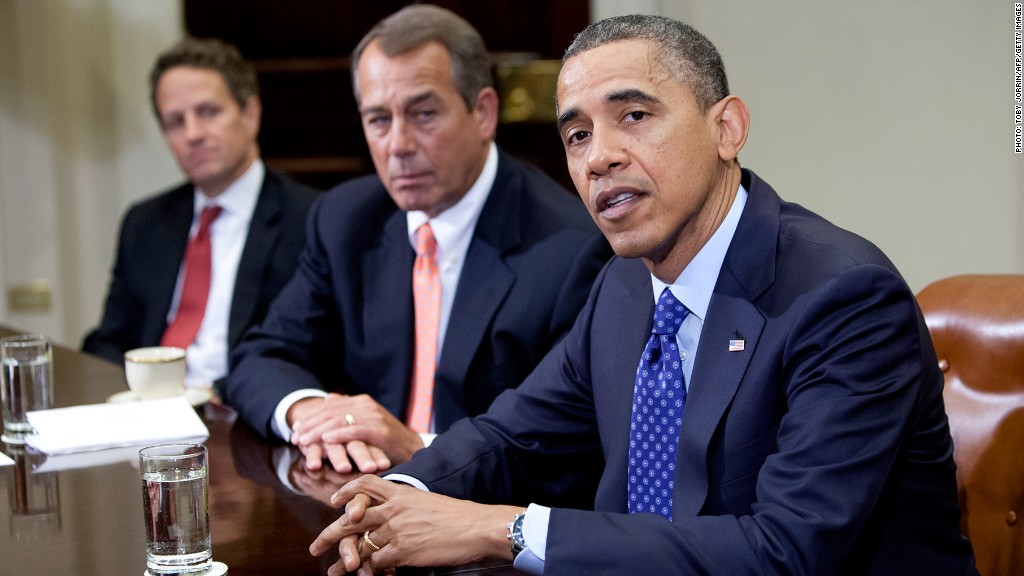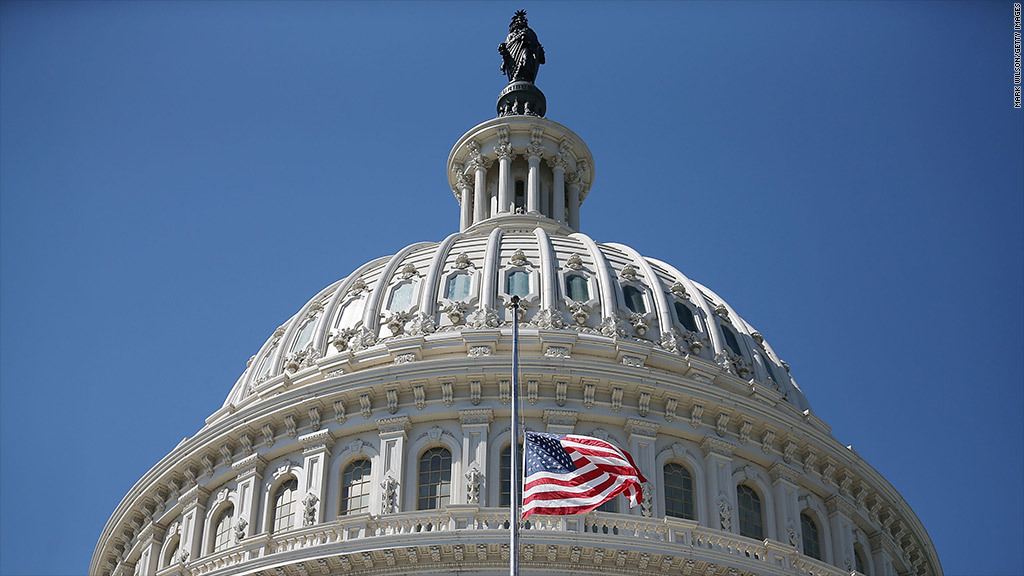
Leaders in Washington say they want to make a "down payment" on deficit reduction and avert the fiscal cliff.
But the size of any down payment depends in large part on whether the two sides can agree on taxing the rich.
One proposal by President Obama and Democrats would raise close to $1 trillion over 10 years.
They want to let the Bush tax cuts expire on income over $200,000 ($250,000 for married couples). They would raise the top two income tax rates, increase high-income households' capital gains and dividend rates, and re-impose limits on personal exemptions and itemized deductions.
On the other side, House Speaker John Boehner and Republicans don't want to raise tax rates on anyone.
But Republicans have also indicated they could accept curbs on tax breaks, as long as they are combined with cuts in spending through entitlement reform.
Neither party wants taxes to go up on the middle class.
So how do you get to $1 trillion in new tax revenue and ensure each party gets what it most wants? Here are two options.
Option A -- Raise rates and curb tax breaks
Democrats insist on raising rates on the rich. But would they compromise on how "rich" is defined?
Republicans don't want tax rates to go up. But would they accept higher rates on a small group of high-income people in a compromise that raised even more revenue by curbing tax breaks?
If the answer is "yes" to both questions, here's one way to get there.
Allowing the Bush tax cuts to expire on income over $500,000 (instead of $250,000) could raise at least $315 billion over a decade, according to Tax Policy Center data.
If they expire on income over $1 million, at least $242 billion could be raised.

Then, to get close to the $1 trillion marker, lawmakers could curb tax breaks in a way that most heavily affects high-income households -- something Obama has himself proposed in the past.
One possibility: Cap the amount of itemized deductions that one may claim at $50,000. That could raise roughly $749 billion over a decade, the Tax Policy Center estimates. Nearly 90% of that revenue would come from households making more than $200,000.
If lawmakers wanted to exclude charitable contributions from the cap, that still could raise $490 billion over 10 years.
Bottom line: Raising rates on some high-income households in combination with a $50,000 cap on itemized deductions could raise anywhere from $732 billion to $1.064 trillion over a decade.
Option B -- Just curb tax breaks
If Democrats decide that raising tax burdens on the rich is a higher priority than raising rates, they may be able to work out a deal with Republicans strictly by limiting tax breaks.
Again the two sides could do it in ways that primarily affect the highest income households, which enjoy more than 40% of the benefits of all tax expenditures.
As stated above, they could cap itemized deductions by a dollar amount.
Another option: limit the after-tax value of certain tax breaks.
For example, lawmakers could enact an after-tax cap that applies to itemized deductions, plus the child tax-credit and the tax-free benefit workers receive when their employer helps pay for their health insurance.
The Committee for a Responsible Federal Budget has done the math on that scenario.
A cap set at 2% of one's adjusted gross income or $10,000, whichever is less, applied only to households making more than $200,000, could raise more than $860 billion over 10 years.


